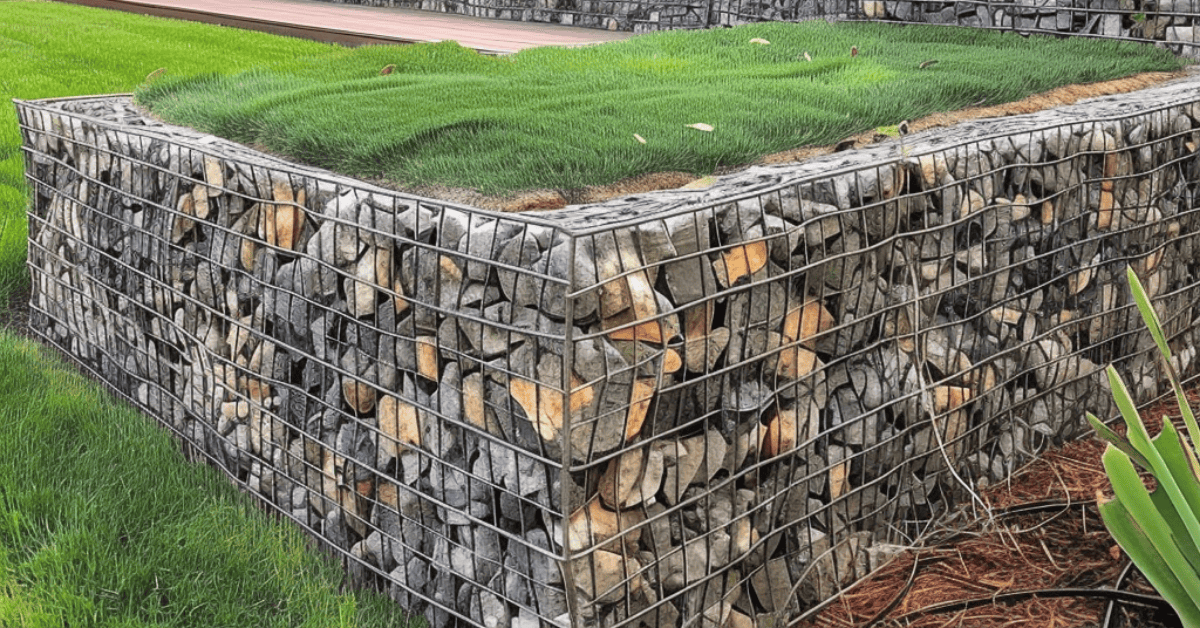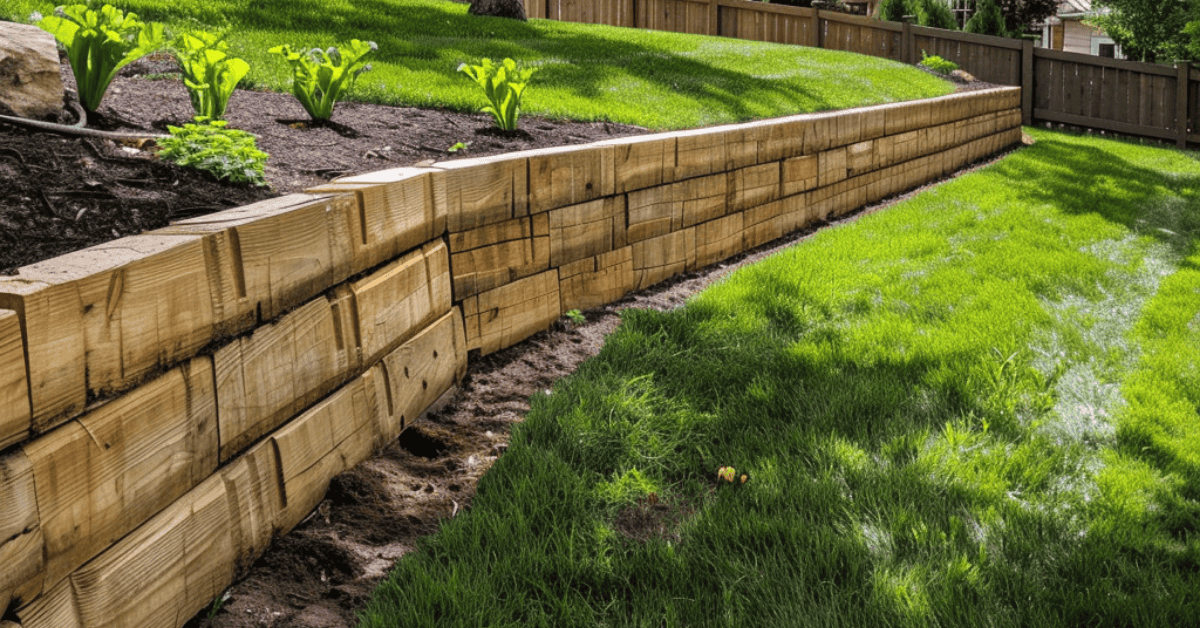Benefits of Retaining Walls in Denver
Erosion Prevention
Retaining walls play a crucial role in preventing soil erosion. Soil erosion occurs when water, wind, or other natural forces displace the top layer of soil from its original location. By constructing a retaining wall, property owners can reduce the impact of these forces and maintain the beauty of their landscaping. The solid barrier formed by the wall keeps soil in place, protecting your property and preserving its natural features.
Create More Usable Space in Your Yard
Another benefit of retaining walls is their ability to create more usable space in your yard. Sloping or hilly terrain can limit the usable area for activities, such as installing a patio or creating a garden. Building a retaining wall allows you to level the ground, providing a flat, stable foundation for outdoor living spaces. This expansion of usable area can increase the value of your property and enhance the overall experience for homeowners and their guests.
Types of Retaining Walls
Overview of Retaining Walls and How They Work
Gravity Walls
Gravity walls rely on their own weight to hold soil in place. These walls are often constructed using heavy materials such as stone, brick, or concrete. One advantage of gravity walls is their ability to resist pressure from the soil they retain, making them a durable option for retaining wall projects. However, it’s important to note that gravity walls may not be suitable for all situations, especially when the soil is too heavy (thereby exerting too much pressure on the wall) or the wall needs to be especially tall.
Anchored Walls
Anchored walls use strong steel anchors, also known as tiebacks, to provide additional support to the retaining wall structure. These anchors are driven into the ground at an angle, then connected to the wall itself. Anchored walls are more versatile than gravity walls, as they can be used in a wider variety of situations – including areas with higher soil pressure or more diverse terrain. They also offer increased stability and strength, making them a popular choice for many retaining wall projects.
Cantilevered Walls
Cantilevered walls are unique in that they are supported by a single foundation at the base of the wall. This type of wall extends horizontally out from the base, creating a T-shape that provides additional stability. Cantilevered walls are often built using reinforced concrete or steel beams, which enable them to withstand significant pressure from the soil they’re designed to retain. This design is efficient because it uses less material, making it more cost-effective while still providing adequate support.
Materials for Retaining Walls
Poured Concrete Retaining Walls
Poured concrete walls offer strong support in retaining wall designs. They are made by pouring concrete into forms, creating a solid, durable wall. This option is often chosen for its clean appearance and ability to withstand heavy loads.
Concrete Block Retaining Walls

Concrete block walls are another common choice for retaining walls and are among the most commonly used in residential landscaping. The blocks are made from concrete, providing strength and durability. The blocks are stacked on top of each other with the aid of mortar to create a sturdy wall.
Allan Block Retaining Walls
Allan Block retaining walls offer a versatile and attractive option for creating landscape walls. These walls are made using specially designed concrete blocks that interlock for added strength and ease of installation. Allan Block walls come in various styles, sizes, and colors, ensuring a perfect match for any landscape design.
While they’re similar to traditional concrete block retaining walls, they don’t require mortar. The blocks are specially designed to be interlocking and they effectively connect to each other.
Stone Retaining Walls
Stone retaining walls use natural stones, creating a classic and timeless look. These walls are built by stacking stones together, using either mortar or a dry-stack method. The dry-stack method does not use mortar, relying instead on the careful placement of stones to ensure stability. Stone walls are generally only appropriate for applications with very low wall height requirements.
Brick Retaining Walls
Brick retaining walls offer an elegant, traditional look. Bricks are made from clay or shale, then fired to achieve their strength and durability. Mortar is used to bind the bricks together, creating a strong and stable wall.
Wood Retaining Walls
Wood retaining walls, typically constructed with pressure-treated lumber, provide an alternative to concrete or stone walls. Though not as durable as other materials, wood walls can still provide effective erosion control and support for slopes. These walls must be well-maintained to prevent rot, damage, and insect infestations.
Importance of Proper Drainage Behind a Retaining Wall
However, proper drainage is vital in ensuring the wall’s success and the protection of surrounding property. Without adequate drainage, water can cause soil erosion, damage the wall, and create safety hazards.
Retaining walls are obviously built on slopes. Water can run down the slope and collect underground behind the surface of the retaining wall. Ensuring water is adequately drained from behind the wall helps maintain soil stability and promotes healthy plant growth.
Improper drainage can lead to excess pressure on the wall. Water buildup behind a poorly drained wall can cause it to bow, crack, or even collapse. In addition to posing a risk to the property, this can create safety concerns for people and pets in the area.
Proper drainage is not only crucial for wall stability, but it also contributes to reduced maintenance requirements. A well-drained retaining wall will last longer and require fewer
Frequently Asked Questions
What is the Most Cost Effective Type of Retaining Wall – Gravity or Anchored?
Gravity retaining walls rely on their mass and weight to hold back soil, while anchored walls use cables or other types of support systems. Generally, gravity walls are more cost-effective for smaller, residential projects due to their simplicity and fewer materials needed. However, for larger projects or projects with specific soil conditions, an anchored wall might be necessary, which can be more expensive but offers better strength and stability.
Do I Need a French Drain for My Retaining Wall?
A French drain is a trench filled with gravel or rock that redirects groundwater away from your retaining wall. Its inclusion depends on your specific site conditions and the purpose of the retaining wall. If your wall is built in an area with poor drainage or high groundwater levels, a French drain can help prevent water build-up and pressure, reducing the risk of wall failure. Your retaining wall contractor can tell you what kind of drainage solution would be appropriate for your proposed project.
Are Permits Required for Retaining Walls in Denver?
In Denver, permits are usually required for retaining walls over a certain height. While the specific requirements can vary depending on your location, it is crucial to contact the City of Denver to determine the regulations that apply to your project. Areas outside of Denver such as Lakewood, Aurora and Castle Rock may have different permitting requirements for retaining walls. Be sure to get in touch with your local government to learn what is required. Regardless of your location, your retaining wall contractor should be able to guide you through any permitting requirements.
How Much Does it Cost to Build a Retaining Wall in Denver?
The cost to build a retaining wall in Denver depends on several factors, including the type of wall, materials used, and the project’s complexity. Your cost will vary widely as no two retaining walls are the same. Nationally, the average cost of a retaining wall is around $5,500, but again, your retaining wall contractor will come up with a price based on your specific requirements.
How Long Will it Take Contractors to Build a Retaining Wall in Denver, Colorado?
The timeframe for building a retaining wall in Denver can vary depending on factors such as weather, accessibility, and the project’s complexity. Smaller, gravity walls may only require a few days to complete, while anchored walls or walls built in challenging conditions may take several weeks. A retaining wall contractor can come up with a good estimate after visiting your property.
Retaining Walls
Prevent Erosion and Create More Usable Space on Your Property

DIY Yard Care
Check out our blog for information on how to do upkeep around your yard. Tips and tricks for keeping your lawn, plants and trees healthy.

Retaining Wall Contractors
View Our Directory of Retaining Wall Contractors

Denver Events Calendar
A monthly listing of the events for you and your family to enjoy in and around Denver

Retaining Wall Blog Posts
Below are blog posts from our blog related to tree planting and overall tree health.
Best Native Colorado Plants, Flowers, and Shrubs for Retaining Walls
Block Retaining Wall Drainage Considerations
Gabion Retaining Walls
Interlock Blocks for Retaining Walls
Retaining Wall Ideas
Natural Stone Retaining Walls
COMPLETE LIST OF ALL SERVICES
All Services
Click a Link Below for More Information About Services Provided
Hardscaping
Curbing
Decks
Fence Maintenance & Install
Fire Pits
Landscape Lighting
Outdoor Kitchens
Patios
Pergolas & Gazebos
Retaining Walls
Walkways
Sprinkler Systems
General
Fall Cleanup-Leaf Removal
Landscape Design
Mulching
Organic Landscaping
Snow Removal
Spring Cleanup
Water Features
Xeriscaping
Trees, Shrubs & Perennials
Flower Beds & Planters
Hedge & Shrub Trimming
Stump Grinding
Tree Planting
Tree Removal
Tree Trimming & Pruning
Lawn Maintenance
Lawn Aeration
Lawn Dethatching
Lawn Edging
Lawn Fertilization
Lawn Mowing
Pest Control
Weed Control
Drainage Issues
Sod & Turf
OUR SERVICE AREA
Serving Denver and Surrounding Suburbs
The perfect Denver landscaper for your needs.
For more information, click on your community below
LET’S GET STARTED
Contact Us
Denver Landscaping Lynx
Phone:
303.268.2866
Email:
operations@denverlandscapinglynx.com
Hours:
Sun – Sat: 8am – 6pm







